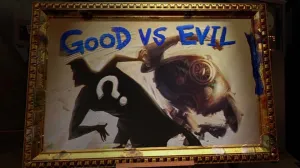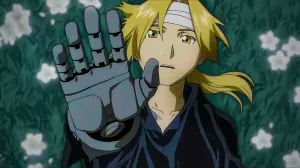Somewhere late in her four decade-long career as a character actress in Hollywood, Lin Shaye became an overnight superstar at the center of a mega-successful film franchise. It’s a professional turn she never would’ve predicted, but she’s loving every second of it.
Videos by ComicBook.com
After a long and steady stint working in secondary and supporting roles — perhaps most recognizably in the films of the Farrelly brothers — Shaye’s turn in 2010’s Insidious, directed by horror wunderkind James Wan, quickly catapulted her to first cult and then mainstream stardom with her portrayal of the empathetic psychic and demonologist Elise Reiner, who through a succession of sequels would return to help various people plagued by malevolent supernatural entities.
With Insidious: The Last Key, the fourth and latest offering in the series, Elise steps center stage for the reveal of her own horror-tinged original story, a spine-tingling tale that surprised even Shaye, as she revealed in conversation with ComicBook.com.
ComicBook.com: Here you were with this lovely career making people laugh with the Farrelly brothers. Now you scare the bejesus out of everybody!
Lin Shaye: Yay!
Did you see that turn coming at all in your career?
No. You know, I never had any vision about my career. Ever. I mean, my vision was, “Oh, let’s see. How would I do that word? What’s that line?” I mean, I’ve always been very focused on detail of the work. I think that has served me well, because as opposed to people who believe you’ve got to have your goals out there in the big picture, and where you’re going to go – well, then you’re so busy there you’re not over here. I never had big goals. My goals were, “I hope I can get in that play,” or, “I hope I can, I hope I can,” and keep going.
The Farrelly brothers changed my life. Then, James [Wan] and Leigh [Whannell, the franchise screenwriter] have changed my life again. What’s interesting is — it’s a whole long story about Kingpin, because that was really the beginning. I had a little tiny part in Dumb and Dumber. Then up to that point I had been doing two lines, three lines. I would go to auditions and for little tiny parts, and always bring in a prop or something that kind of made me get the job, because I’m a theater actress.
There’s so many stories to tell, so I’ll try not to digress too much. I better not, because I’ll go off into a whole thing! But long story short to answer your question: I really didn’t, I never envisioned what’s going on, and I’m having the time of my life.
Why did you connect with Elise from when you first were introduced to the character? And why do you think audiences have connected with her and want to keep seeing more of her story?
I think she’s an empath. She feels other people. She’s a giver. She’s not a taker. She’s about how can I help you. We were just saying that this is a me world right now. The iPhone. It’s the me, me, me. Not the “youPhone.” Not the “usPhone.” Not the “themPhone.” I mean, that really to me exemplifies what our society is like right now. Timing is everything in terms of appreciation, and I think this is a really optimum time for a character like that to make people remember about what it is, without being corny, to be a really good person. To really do the right thing for people.
In Chapter Four, The Last Key, we even see more so with the backstory. Leigh built this tragic backstory, and that in spite of that she still comes through and becomes a good person. I think it’s got a lot of important elements to it that make it attractive subliminally to people who are kind of slipping all that in. Because it’s still a popular entertainment horror franchise. There’s still scares and all that, but there’s deeper stories, and that’s why I think the franchise is successful too.
Tell me what you might have had in your head about Elise, and then when you see this actual origin story put on paper for you to bring to life.
Very different! In the first one, I always saw her as being an only child. I realize it’s kind of like my own story. I had a brother, but there were no kids in our neighborhood. I used to pretty much play all by myself and make up stories. I think I always pictured Elise as a loner who opened herself up to these entities because of her vulnerability and her imagination. That’s how she realized she has this ability to draw in the spiritual world.
But Leigh had a very different idea. His is much better! It really is, because I think again, it accentuates who she becomes in a much stronger way. I also think touching on family abuse is a very important topic today. I think there’s a lot of it that goes on – it crosses over financial stratas, gender, mother, father, uncle, aunt, any of it. It’s not discussed. I think people, kids are afraid to discuss it. They bury it. They don’t think about it.
I think that this is provocative […] I think it’ll maybe bring to light certain things that happened, and that in spite of that you can still grow up and be a good person.
She’s got two different families working here. She’s got the family she’s assembled over time, and then she’s got this lost blood family she’s reconnecting with. That must’ve been fun to see her as not such a loner, and be able to show those connections.
Totally. I mean, because I said to Leigh, “Wait a minute…” It was funny. Even after I read the script, someone asked me about Elise, and I still said she was an only child. Leigh said, “What do you mean? She’s got a brother and nieces.” I was reluctant to embrace his version. But I mean, it’s a great, great story. I think the scene with her and her brother is very powerful.
Family is important. If you’ve got it, you might as well embrace it. Even the differences and the good and bad stuff we all do to ourselves and to each other. Family is family. I think you’re missing out if you don’t figure it out a little bit before it’s too late.
What did the horror genre mean to you before this came along? Was it something you enjoyed working within, or enjoyed watching movies in that vein? Or was it a foreign territory?
It was just another way to tell a story to me. My big brother is Bob Shaye, who started New Line Cinema. I mean it was totally Bob who said to Wes Craven, “Put my sister in your movie.” I mean, really. Then he pretended he didn’t. Bob was a very complicated, wonderful, brilliant, brilliant man. Brilliant producer. Critters was New Line. Nightmare on Elm Street was New Line. Dumb and Dumber was New Line. I have my big brother, Bob Shaye, to thank mostly really for the beginning of my real career.
People like to say, “Well, you spun straw into gold.” Because I did my work and took it very seriously, even though they were small roles. It’s funny that people really remember the teacher in Nightmare on Elm Street. I didn’t even have a name. It was “The Teacher.” It’s somehow a memorable scene.
I’m still puzzled and delighted with the fact that I don’t know what’s appealing about me, to be honest. I’m not saying that fishing for a compliment! I really don’t get it 100 percent. But whatever it is, I’m grateful to have some communicative skill or presence that translates, because film is weird. I mean, I don’t think the camera particularly loves me. The camera loves Rose Byrne. I mean, you look at Rose Byrne, whatever angle that woman is sitting at, I mean, and just go, “Oh my god.” But there’s something that I have–
Something happens on screen.
I transmit. There’s something that I transmit, which I don’t even want to think too much about because…You know, you’ve got to be careful about trying to manipulate what’s working or think too much about it. Mostly I just try to do my work for real. I mean, I try and figure out the moments that tell the story that reveal the character. I love that it’s a team sport. I love this team, too, in particular. It’s a beautiful bunch of people. I feel very, very, very fortunate and grateful.
What’s that thrill that you got when you first started out acting that you still feel today? And what’s a little different now?
Well, that’s a great question. There’s no difference. There’s something magnetic. Being on stage is a whole other thing, also. Theater is… I can’t even describe those moments before the curtain goes up. It’s the most… Your heart, no matter — I don’t care how many times you’ve done it, when you hear the audience you can tell how many people are in the theater by the sound of the [rumbling noise] right before. There’s just something… It’s really magical.
Film is different. It’s a whole different process. But there’s something that grounds you. It’s almost like having a grounding wire. For me, it’s about the moment – like doing [she makes a small movement with her hand] on camera says something. Go figure, but it does. It you dip your cookie and you put it down, it says something. If you just move your cup, it says something else. I mean, the amount of detail that you can create on film is spectacular and I’ve grown to really love that and appreciate it, and have learned sort of to use [little things]. The real emotional stuff? I don’t think about that so much. I leave that to the editor.
I try to really tell whatever my internal truth is as best I can. My emotions are very on the surface in general. My emotionality is nothing I have to search for. That’s thank you to my mother, in a good way. In a good way. I value that. I mean, that’s a treasure to have as an actor. I have all these little things I’ve learned, and all this equipment I’ve been gifted with that has not changed. I mean, my joy of sharing it and figuring out story is just amplified. I don’t even call it talent. I don’t even know if it is talent. It’s a desire to do something that makes sense to me I guess on some level, which gratefully is making sense to other people, whatever that is.
I’m not a piano player. I can’t sing. I can’t… I’m not an athlete. I am a little bit athletic, but not that kind of an athlete. You know, when you think of all the things people are gifted. Science, what you’re gifted to do. I have something that I know is not… I’m not manipulating, that travels. It’s a little like Elise. Something travels through you. I’m very grateful to have it.
Well, I’m glad you found it.
I am too. I really am too.
****
Insidious: The Last Key opens in theaters January 5, 2018. The film is directed by Adam Robitel, written by Leigh Whannell, and stars Lin Shaye, Angus Sampson, Leigh Whannell, Josh Stewart, Caitlin Gerard, Kirk Acevedo, Javier Botet, Bruce Davison, Spencer Locke, Tessa Ferrer, Ava Kolker, and Marcus Henderson.








